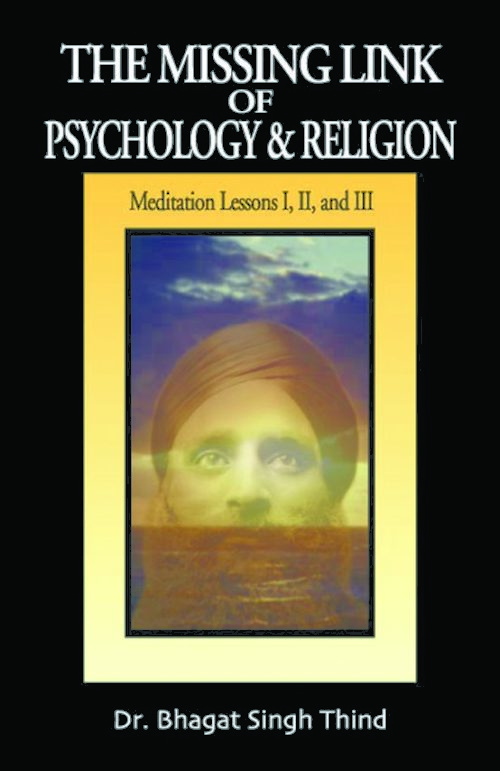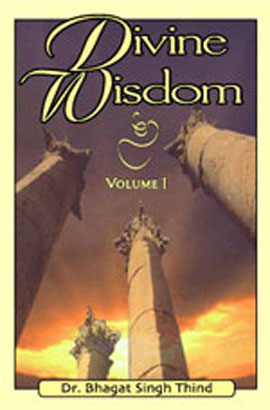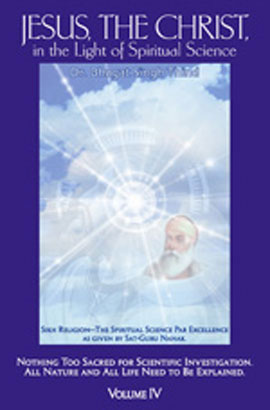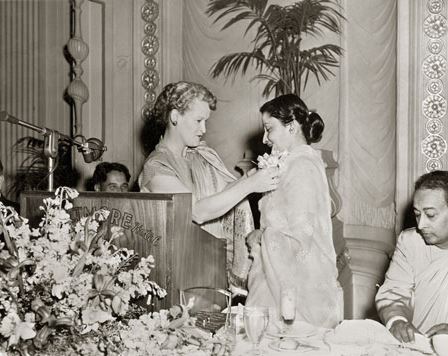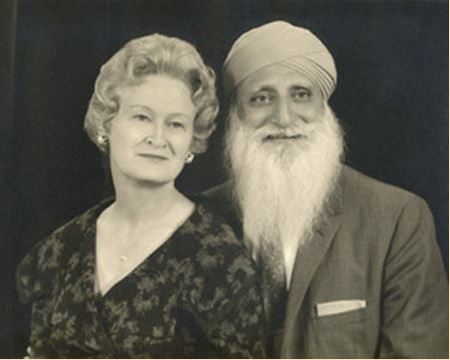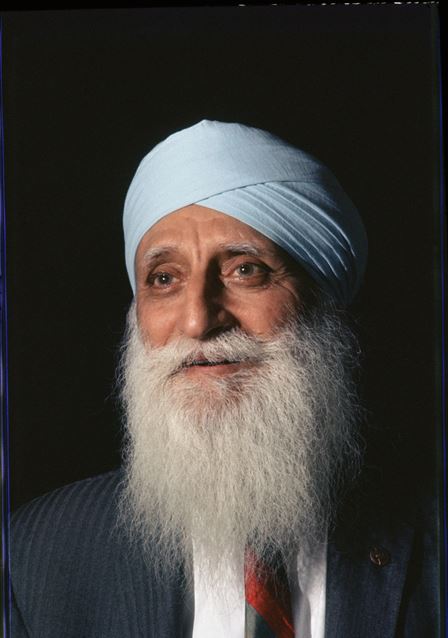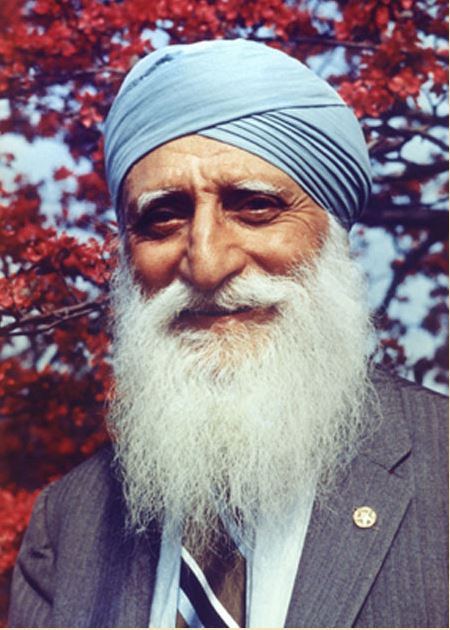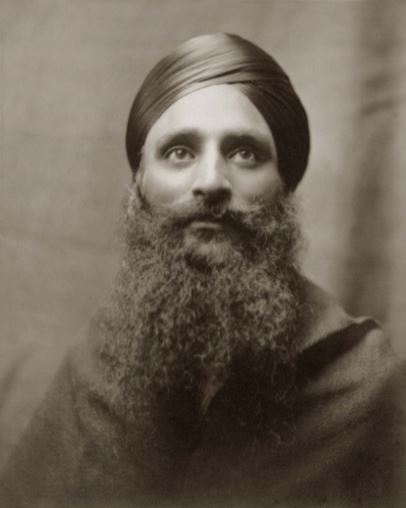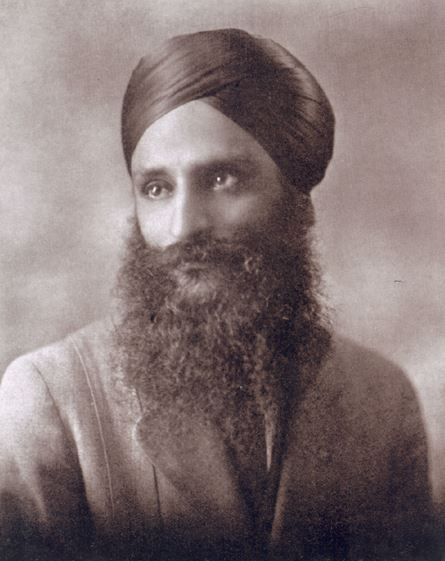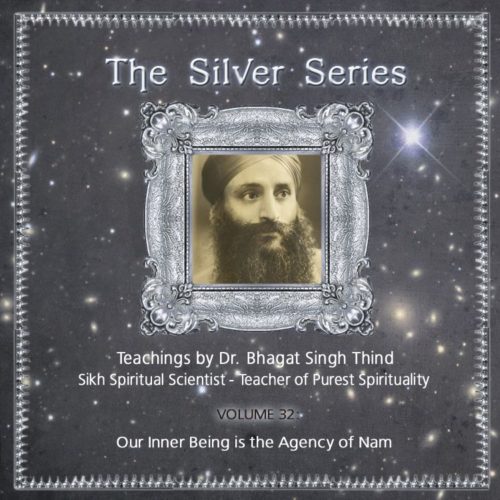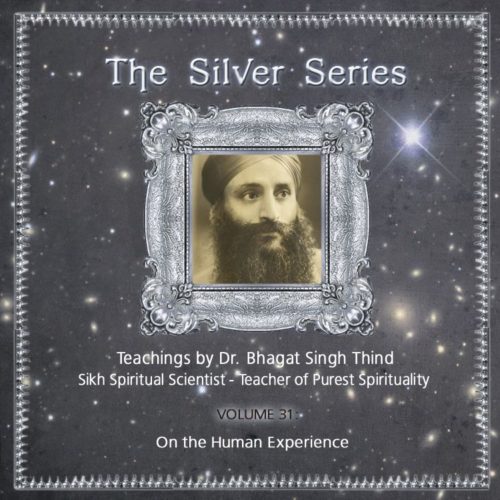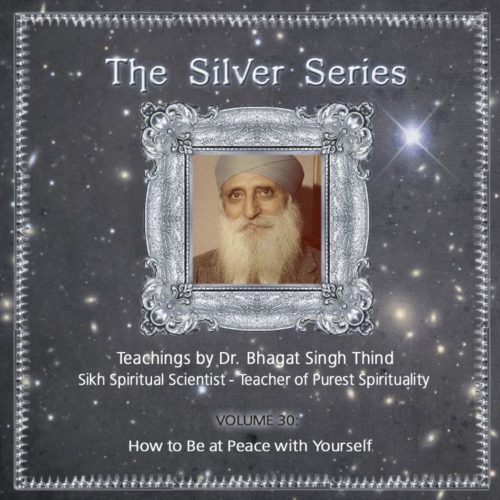-
A philosophy of remorse and resignation, an ascetic code of ethics, the denial and despair of all that man’s heart has ever wanted, a defeatist attitude of otherworldliness and world-weariness, constitute an insult to the infinite intelligence of the universe, a veritable sin against ourselves and the beautiful world in which we live, and which has a claim on us. We believe in the Infinite Power, and so we also believe in His Worlds. We are not placed here to deny Him and His World but to know Him, know ourselves and our world, and fulfill His truths in all them; to probe the secrets of earth and analyze the meaning and mysteries of Heaven; and to know the truth about ourselves---the truth that sets men free and establishes them in their own nature. ISBN: 978-1-932630-57-2
-
In this collection of deep and inspiring essays, Dr. Bhagat Singh Thind imparts a true knowledge of life as it appears in physical manifestation. In doing so, he has set forth the true philosophy of life, in which philosophical selfishness is set aside, creeds and dogmas are relegated to the past, and sunlight of truth is permitted to shine in all its splendor. There can be no variance in truth. It is the same now and forever. Where there appears to be variance, it is due to a perversion by the instrument through which the observer views the world, such that the media through which life is manifesting is at variance with the object seen. The grandeur of life is destroyed by the attitude of the ego toward the objective world---which, however, has not changed. The change is within man and is caused by the assumption of various moods. Instead, we must learn to view the world by the divine spark that animates our being. We must become one with the Infinite in order to comprehend even a small portion of it all. Dr Thind has very explicitly blaze the path to full comprehension of our higher nature, and if faithfully followed it will lead the seeker to higher knowledge.
-
The Enlightened Life presents a collection of seven meditation lessons written by Dr. Bhagat Singh Thind to enable the seeker to find his own source of Truth through the daily practice of concentration and meditation. Dr. Thind explains that ignorance is the dark night of the soul, a night without stars or moon; it is the field in which all difficulties grow, in which all passions and weaknesses are born. The sage’s quest is for himself and within himself. He advances continually in the spiritual life by remaining carefully self-gathered within and sees the gleam of true light there, which dispels all outer darkness. Whoever wishes to know the Truth must sound the depths of his own heart. The eternal cannot be seen, so long as the mind is not as rest. The force of attention, properly guided and directed toward the Inner Life, allows us to analyze out soul, and will shed light on many things. The force of the mind resembles scattered rags; concentrate on them, and they illumine everything. This is the sole source of knowledge we possess; to attain this knowledge there is only on method--concentration and meditation. In The Enlightened Life, Dr. Thind offers the wisdom and guidance of a true sat-guru in the profound practice of meditation. For, as he often said, “Real action is done in moments of silence; there every battle is won before it is fought.”
-
In this, the final volume of the series Jesus, the Christ, Dr. -Bhagat Singh Thind -continues his careful and critical examination of the scriptures and practices of Christianity, and contrasts them with the requisites of true spiritual growth and the unification of man and God. Dr. Thind asks hard questions and answers them with keen and cutting insight. Why was God’s greatest creation—man—so imperfect as to require a savior? Why did God wait millennia before sending him; and why is man’s redemption still incomplete, two thousand years later? How—and by whom—were the gospels composed, and why is there no record of Jesus’ life other than the brief period of his ministry? What meaning can we ascribe to some of Jesus’ apparently irrational words and deeds? And why does Jesus never smile, but often weep? No defunct savior—be he Christian or Sikh, Jew or Gentile—can ever save mankind. Rather, a living and present guru is needed to assist each individual in seeking his own perfect unification with God, which can only be accomplished through meditation on His Holy NAM. The seeker must transcend both his human and animal nature and all other pairs of opposites, knowing that struggle and suffering are essential to the growth of the soul on its Godward path. Ultimately, we must learn to see reality with God’s eyes, as He Himself sees it. This rational, pragmatic, and testable -approach to -religion is the essence of Sant-Mat, or Spiritual Science. Indeed, science and religion are complementary, not opposites—for, as Dr. Thind points out, what is true in one cannot be false in the other.
